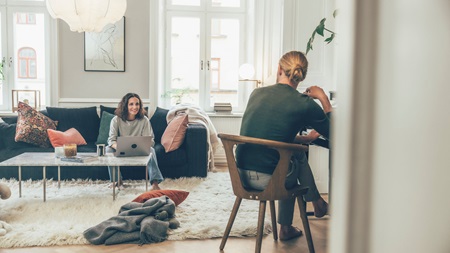Why should I buy my own home?
Buying a home is an investment that enables you to accumulate wealth. Instead of paying monthly rent to a landlord, you pay yourself for your home each month.
You can also furnish and renovate your own home to your own taste. When you rent, you usually need to ask the landlord before you can carry out even minor changes such as painting the walls.
When life situations change, owner-occupied housing and a housing loan are more flexible than a landlord. If you go travelling, you can let your own home for a longer or shorter period and then return to it. And if by chance you decide not to return to your own home, you can always sell it.
You can apply for instalment-free periods for the loan to give your finances flexibility. If needed, you can apply for instalment-free periods using the loan change form.




